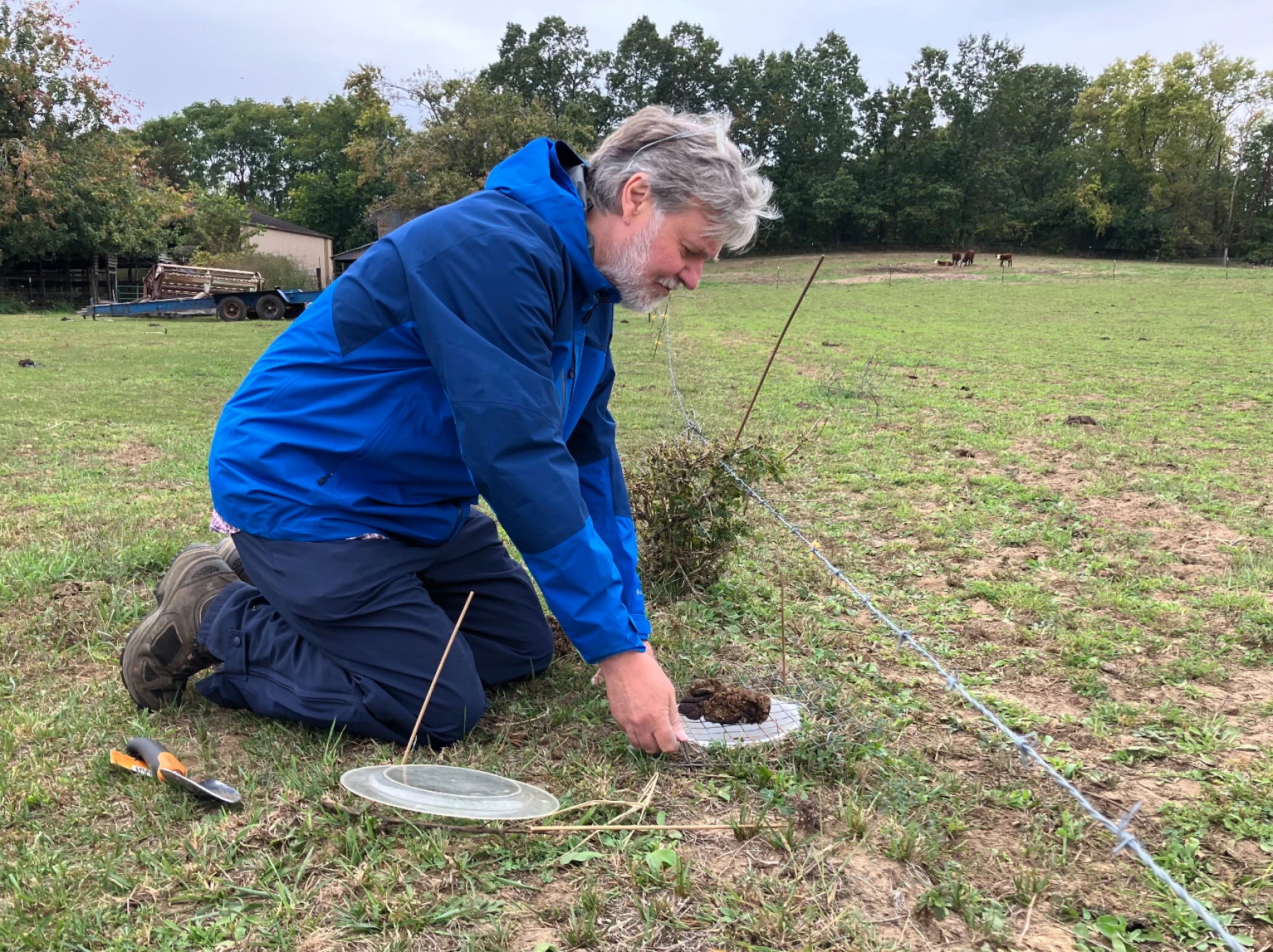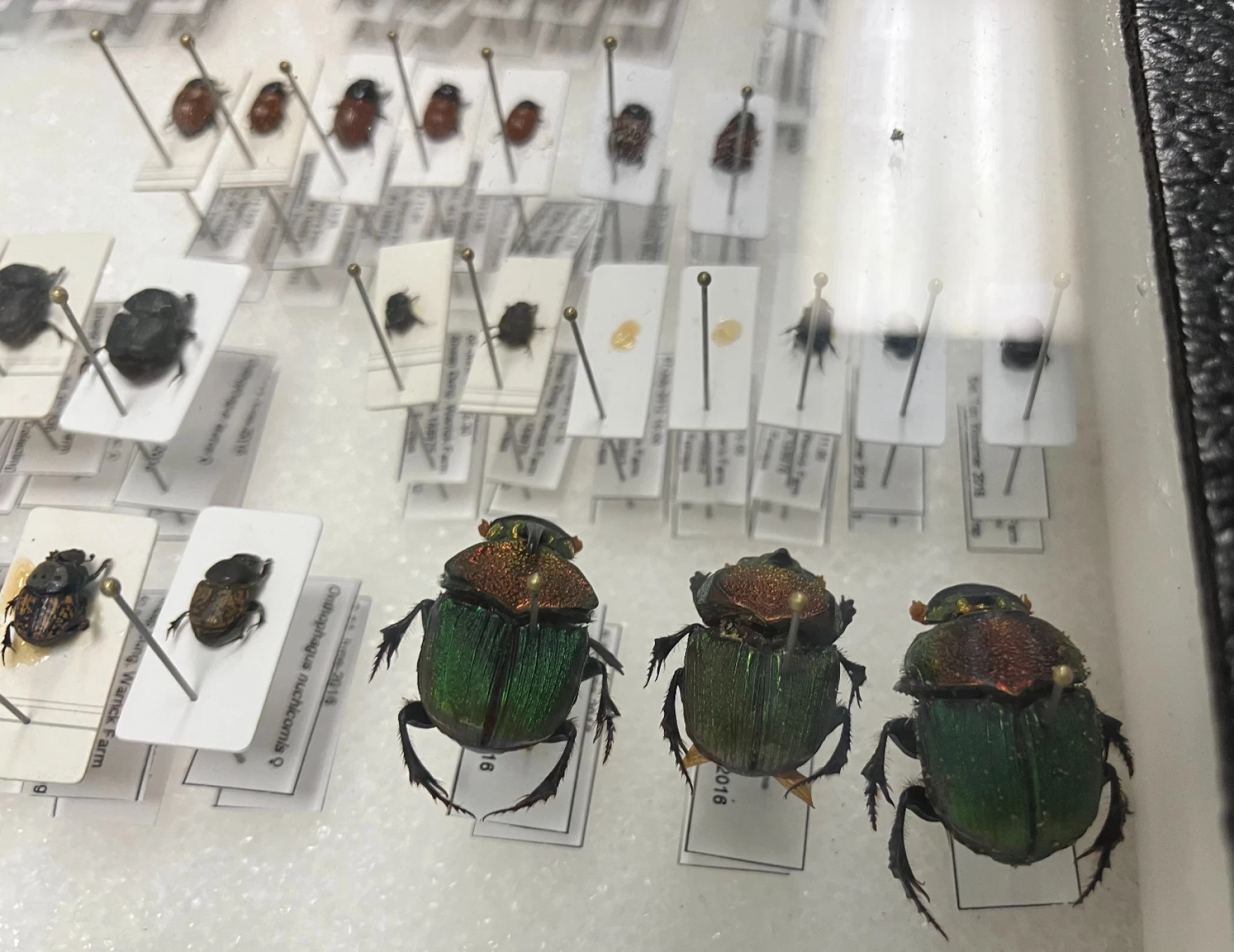
Siena Heights University’s Professor of Biology, Dr. Thomas Wassmer, recently had his research on insect population decline and dung beetles featured on nine public radio stations across the Midwest, as well as National Public Radio’s (NPR) “All Things Considered” segment.
Dr. Wassmer’s research contributes to the evidence for an alarming decline in insect populations including dung beetles. He has studied dung beetles since 1990, first in Germany and since 2006 in the USA, and has noted a decline in habitats and food sources—rendering dung beetles especially vulnerable to the threats endangering all insects.
Since 2019, Wassmer has been part of a research workgroup comprised of 80 different universities across North America that are committed to collecting and sharing consistent data on insect populations from their respective regions. While the estimated rates of decline vary across the studies, many entomologists—that is, people who study insects—believe that the driving force behind this decline can be traced back to climate change, habitat loss, light pollution, and the widespread use of pesticides. Therefore, the environment has become increasingly unwelcoming to insects, which is bad news since insects pollinate more than 80% of our food plants and are essential to the food chain supporting birds and mammals. In addition to providing more consistent and up-to-date data on insect population decline, the research done by Wassmer and others is essential in bringing awareness to the topic. Insects play a vital role in the ecosystem by pollinating crops, decomposing organic matter, providing food for other animals, and more.

Wassmer’s research was featured on public radio stations across the Midwest including Michigan, Iowa, Nebraska, Oklahoma, Wisconsin, Colorado, North Dakota, South Dakota, Missouri, and Kansas prior to being picked up by NPR. It was first aired on November 21, 2023, on NPR’s “All Things Considered” and a written version is expected to appear on the National Public Radio website at a later date.
Of this research and subsequent accomplishment, Wassmer said, “I am excited to contribute to such an important research field. Our group recently published the results of the first three years of data collection, and we were honored to be one of only five incubator projects of the MEFA coordination network of the Ecological Society of America. I look forward to continuing to contribute data from Adrian, Michigan, over the next 3-5 years, allowing us to draw definite conclusions about the fate of insect populations in North America.”


